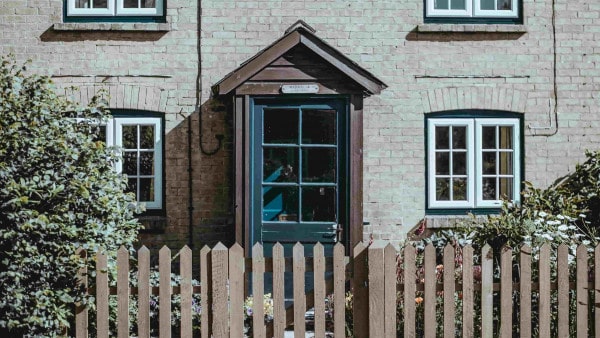Divorce Process
Do I have grounds for divorce?
You no longer need to provide grounds for divorce when filing for a divorce in the UK. All you need is a statement from one or both of you, that your marriage has broken down irretrievably.You can start divorce proceedings once you’ve been married for more than 12 months.
Does it matter who files for divorce?
Not really, though there may be advantages to being the spouse who files for divorce (the ‘petitioner’).The petitioner has more control over proceedings than the other spouse (the ‘respondent’).
The petitioner gets to give the reason for the divorce (the ‘fact’), as well as which details to include to support it on the divorce petition.
Another benefit of filing for divorce is that you can fully prepare for proceeding by getting your finances in order and choosing a lawyer that works for you.
Do the reasons for divorce affect the financial settlement or child arrangements?
No, financial settlements and child arrangements aren’t usually affected by the reasons for divorce.Financial settlements and child arrangements are based on fairness and protecting the interests of your spouse and any children. The division of your marital assets, and the contact you can have with your children, is not determined by your behaviour during the marriage.
However, there are extreme cases where ‘unreasonable behaviour’ may affect the outcome of your divorce settlement. For example, if your spouse was abusive to you or your children, it may be taken into account when making childcare arrangements.
Do I need a solicitor to get divorced?
No, but many people choose to since the divorce process can be stressful, confusing, and time consuming.A solicitor will help make the process easier for you, particularly if your spouse complicates your divorce by contesting it.
You’re also advised to use a solicitor if your divorce involves children or significant amounts of money and other assets. You’ll benefit from their advice when you’re negotiating child arrangements and a financial settlement with your spouse.
We have lots of experienced lawyers who can help guide you through each stage of the divorce process.
How much does a divorce cost?
The cost of a divorce depends on a number of factors, like whether it’s contested by you or your spouse, and your solicitor fees.If your divorce is uncontested (you both agree to the divorce), you can expect to pay:
- £1000 - £1,500 if you’re the ‘applicant’
- £240 - £600 if you’re the ‘respondent’
Explore our guide, ‘How much does a divorce cost?’
Who pays the divorce court fees?
Court fees are usually paid by the person who starts divorce proceedings.- £550 to file for divorce
- £100 to make a consent order application (to make your financial arrangements legally binding)
- £225 to make a financial order application (when you’re unable to agree on how to split your finances)
However, if you want to contest the divorce, you’ll have to pay a court fee of £245.
What might affect the cost of my divorce?
Factors that can affect the cost of your divorce include:- Whether your divorce is contested of uncontested
- Whether you are the applicant or the respondent
- Whether you enter into extended negotiations with your spouse, resulting in higher legal fees
- Whether you have children, complex assets, or other complicating elements in your marriage
Can I get a quick divorce?
No, getting your divorce finalised always takes several months. While there are some things that can affect the speed of a divorce, it must follow a set process.Your divorce will go more quickly if it’s uncontested (you and your spouse both fundamentally agree with the divorce). In this situation, the best-case scenario to finalise your divorce would be between four and six months.
Regardless of how co-operative you and your spouse are, however, your divorce can still be slowed down by factors beyond your control (like how busy the divorce courts are, how quickly paperwork is processed - and the circumstances of your marriage).
The average time it takes for a divorce to be finalised in the UK is about eight months.
What things can affect how long my divorce will take?
There are many factors that can affect how long your divorce will take, such as:
- How quickly your spouse responds to your divorce petition
- Whether you both agree to the divorce
- Whether you need to make child arrangements
- Whether you agree how to divide your marital assets and organise child arrangements
- How complex your financial arrangements are
- How co-operative your spouse is during the process
- How busy the divorce courts are
Finances
How do we split our finances?
You need to come to an agreement with your spouse about how to split your finances as part of a financial agreement. This involves deciding how to split things like:- Savings
- Property
- Investments
- Pensions
- Debts
If you still can’t agree on a financial settlement, you can apply to the court to decide for you, though this will increase the cost of your divorce.
Do I have to take on some of my spouse’s debts?
In general, you will only be expected to take responsibility for debts that are in your own name.However, debts that were taken on by either you or your spouse while you were married may be considered ‘matrimonial’ debt. This means that you may be responsible for some debts that were primarily for your spouse.
Are pensions included in the financial settlement?
Yes, pensions are considered a marital asset that can be included in a financial settlement.However, there’s no legal requirement to split pensions equally, and they’re often considered separate in practice. For example, if your pensions were largely built up before you got married, or if your marriage was short, you may agree to keep them separate.
Explore your options in our guide ‘Divorce: Pension Rights’.
Property
What happens to the house?
Your house is considered a marital asset, regardless of whose name is on the title deeds. This means you’ll need to decide what happens to it as part of the financial settlement.The options available to you will depend on your own circumstances, like whether you have children, or if one of you can afford to move out of the house, as well as whether you can agree with your spouse without going to court.
Some of the common outcomes include:
- Selling the house, and splitting the equity between you and your spouse (this doesn’t have to be 50/50)
- Out-buying one partner and remaining in the house (the house doesn’t need to be sold). This often requires a new mortgage
- One spouse stays in the house while the other receives a lump sum, or retains a ‘stake’ in the house. They would then get a previously agreed proportion of the proceeds when the house is sold sometime in the future
- One spouse remains in the house until certain conditions are met (such as until all children turn 18, after which the house can be sold and the proceeds split between each spouse)
Find out more in our guide, ‘What happens to a house in a divorce?’
Do we have to go to court to decide what happens to the house?
No. You and your spouse can decide what should happen to your marital home.If you both manage to come to an agreement with your spouse, you can ask the court to make it legally binding for you.
If you’re unable to reach an agreement, you can try mediation.
If you still can’t agree, you can apply to the court to decide for you.
How does the court decide who gets the house?
If you have children, it’s the court’s priority to protect their welfare when deciding what happens to your house.They will try to cause as little disruption to your child’s life as possible. This means that the court will often give the right to remain in the house to the parent who is your child’s primary caregiver, regardless of whose name is on the title deeds.
If your divorce doesn’t involve children, the court will try to make a decision that’s both fair and protects the interests of your spouse.
Business Assets
I started a business before getting married; is my spouse entitled to a share as part of the financial settlement?
Yes. All assets you own automatically become marital property once you marry, unless you specify otherwise in a prenuptial agreement.This doesn’t necessarily mean you’ll lose control of the business, or have to hand over any shares. You can offset the value of your business by offering your spouse other marital assets (such as savings, investments, or property).
My spouse wasn’t involved with the business – is it still considered a marital asset?
Yes. Anything that’s owned by either spouse is considered a marital asset.However, it’s unlikely that the court will award part of a business to your spouse if they’ve never been involved with its operation.
The court will try to divide your assets so that you have a clean break.
Children
Do I have to go to court to arrange contact with my child?
No. It’s best if you and your spouse can decide how you’ll look after your children without going to court.Keeping your disagreement out of court gives you more control over the outcome and should be a simpler process.
If you’re unable to reach an agreement with your spouse, mediation might be able to help you.
Explore our guide, ‘Arranging contact after divorce’.
Do courts favour mothers in cases involving children?
No, courts aren’t biased towards either gender when deciding child arrangements.The court will base their decision on what’s best for your child’s welfare. This means that the court will usually favour making the primary caregiver responsible for the majority of their childcare.
In practice, the court will try to give you and your spouse joint custody of your children (where you each have roughly equal access) as it’s considered best for their well-being.






